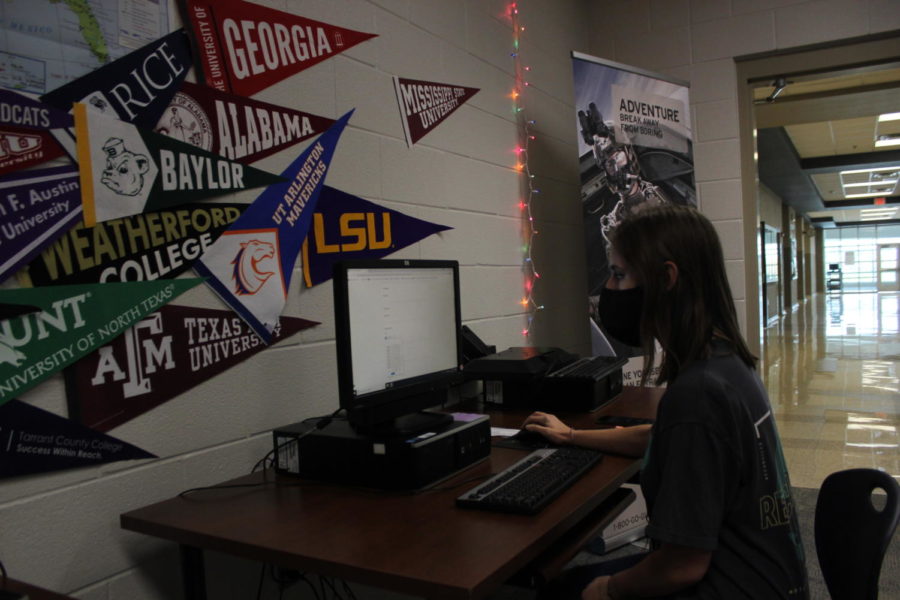AP Tests at Home?
The AP test will look a little different as CollegeBoard changes its formatting options, due to the ongoing pandemic.
With Juniors and Seniors approaching the borders of college life, they have to get through one blockade first, the AP test. The AP test is offered and served in many different forms. From AP Biology to AP World History, there are many classes that require students to take the AP test to see if a student is able to receive their college credit for the course. What is typically a hand on paper test, proctored by authorities, this year, students have the option if they want to take the test on paper or online. Given the chance, the future of how the AP test is taken is up to the student.
With the opportunity of AP testing being able to be executed at home and online, there are many mixed reactions within the students. Some are excited and some do not care to say the least. There are students who are originally virtual learners and taking the test online saves them the commute to home campus on having to take the test in-person. However, there are setbacks such as not being able to go back on questions. For Senior, Eriel Fields, having the opportunity to take the AP test online is a new experience and journey for her and she assumes everybody.
“I’m taking my AP exams digitally. I think it’s effective, because some people aren’t ready for the paper exam which has an leq in it. Taking it online would be a different experience, but the digital exam is timed and full-length. There are some significant differences with the format and how the score will be calculated. However, I think I’ll do better online, because I normally go through tests faster online and I think I have an advantage,” said Fields.
Taking the AP test online in contrast to in-person leads to many differences. One, there is no proctor there to be able to monitor the student’s every more. Two, there is no ability to be able to go back on a question after answering it. Taking the test online leads to more opportunities for inevitable cheating. This can lead into the credibility of “academic dishonesty.” For AP Biology Teacher, James Lee, students cheating is based on morality rather than credibility.
“I am not afraid of students cheating on their exam. Students who cheat will cheat regardless of if it is in person or online. Ultimately, academic integrity is dependent on the students and I believe students will rise to the challenge in terms of upholding their academic integrity at LRHS,” said Lee.
A wonder on some minds is if this is the best way to execute the AP testing, especially during the current pandemic. As taking it at home leads to many differences, taking it in-person leads to sitting next to students not even six feet away. Another influence on students’ decisions could also be due to the current pandemic. For AP US History teacher, Leigh-Ann Smith, College Board’s decision on having students choose how they want to take their AP test was in her opinion, the only resort.
“I do believe it was the only option. I do wish that College Board had decreased the content that teachers were required to cover, as many districts did not start school until October and many have had shortened school days and homework and workload restrictions. This makes it very difficult to have equitable coverage of the content,” said Smith.
AP testing is a key part of a students’ high school experience and it gateways to the path of college life. Whether taking it at home or in school, what remains the same is the scoring range of: one to five.


